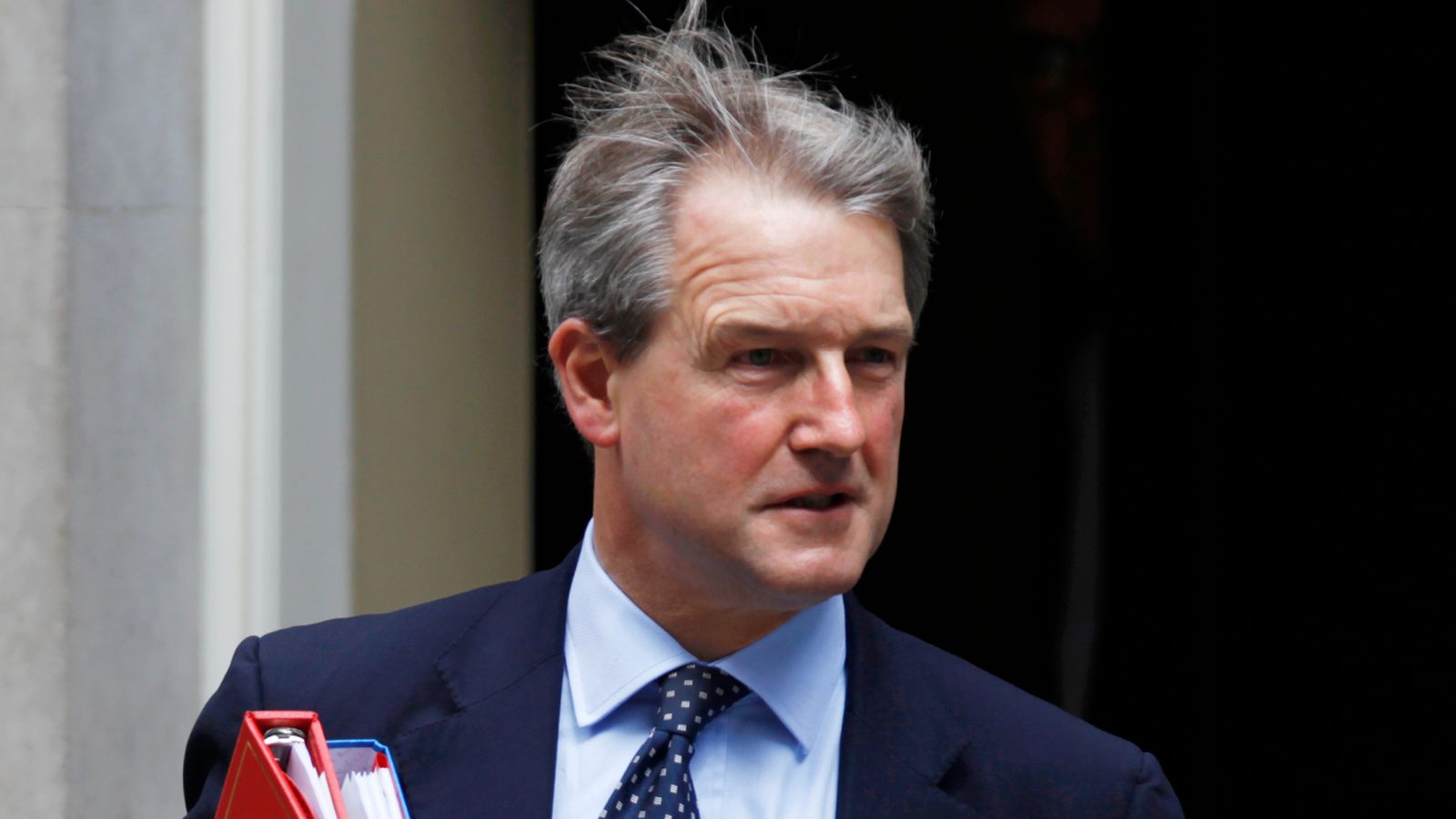The government has decided to drop plans to place a cap on MPs’ second job earnings months after voting to do so following the Owen Paterson scandal.
Ministers told the independent Commons committee on standards that imposing time limits on MPs’ other jobs would be “impractical” and a cap on outside earnings would “not have the intended effect”.
The committee launched a consultation into the MPs’ code of conduct in November last year after the Westminster sleaze scandal.
Please use Chrome browser for a more accessible video player
Former Conservative minister Owen Paterson was found to have breached lobbying rules while working as a consultant for clinical diagnostics company Randox and meat processor Lynn’s Country Foods, and the government called on MPs to vote against suspending him – before he then quit.
Sir Geoffrey Cox, who earned about £1m over the past year for his legal work, then caused an uproar for working as a lawyer for the British Virgin Islands as part of an inquiry into corruption allegations.
The government agreed there needed to be a curb on MPs’ outside interests in November but in a response to the consultation, it said some limitations would not work in practice.
Earnings cap
Stephen Barclay, the chancellor of the Duchy of Lancaster, and leader of the House of Commons Mark Spencer told the committee that a cap on second jobs earnings “could serve to prohibit activities which do not bring undue influence to bear on the political system”.
Owen Paterson: Disgraced former Tory MP’s WhatsApp messages to Matt Hancock reveal extent of lobbying
North Shropshire by-election: Tories face anxious wait as Liberal Democrats hope to spring surprise
North Shropshire by-election: Could a surprise be on the cards?
They added that earnings from activities such as writing books “would not preclude members from meeting their principal duty to their constituents”.
And they also said MPs who have been in office for a long time could “inadvertently reach the ‘ceiling’ through earnings accrued over time”.
The ministers questioned whether it would be fair to “subject that member to a standards investigation” just because they have been an MP for a long time.
They said to avoid that issue the cap would have to be high and would therefore not prevent MPs from taking on outside work and “may not have the intended effect of ensuring members prioritise their parliamentary duties”.
Limiting time ‘impractical’
On limiting the amount of time MPs can spend on outside work, the ministers said that could mean MPs could carry out work that is not “appropriate”, such as paid advocacy, as long as it in the time limit.
“The imposition of fixed constraints such as time limits on the amount of time that members can spend on outside work would be impractical,” they added.
Ministers want to restrict types of second jobs
The ministers offered up an alternative, saying they supported reforms to restrict the type of second jobs MPs are allowed to have.
As it has argued before, the government said it believes MPs having second jobs can benefit both parliament and their constituents.
They did not say what those jobs should be, but did say they support the current plan to ban “paid parliamentary advice, consultancy, or strategy services”.
A final decision will be made after the consultation has finished and a final report has been produced by the committee.
Labour calls for stricter standards
Labour said the prime minister “can’t just row back on his promises… just because he is in a spot of bother with his backbenchers”.
Thangam Debbonaire, shadow leader of the House of Commons, said: “This is a prime minister who has repeatedly allowed his own MPs to put their own private business interests ahead of their constituents and it must be stopped.
“He can’t just row back on his promises to tighten up the rules on second jobs just because he is in a spot of bother with his backbenchers.
“Labour supports toughening up the standards system, with a ban on directorships and paid consultancy, and the House of Commons must be given the chance to debate fully and approve any measures put forward by the Standards Committee to toughen up the system.”








